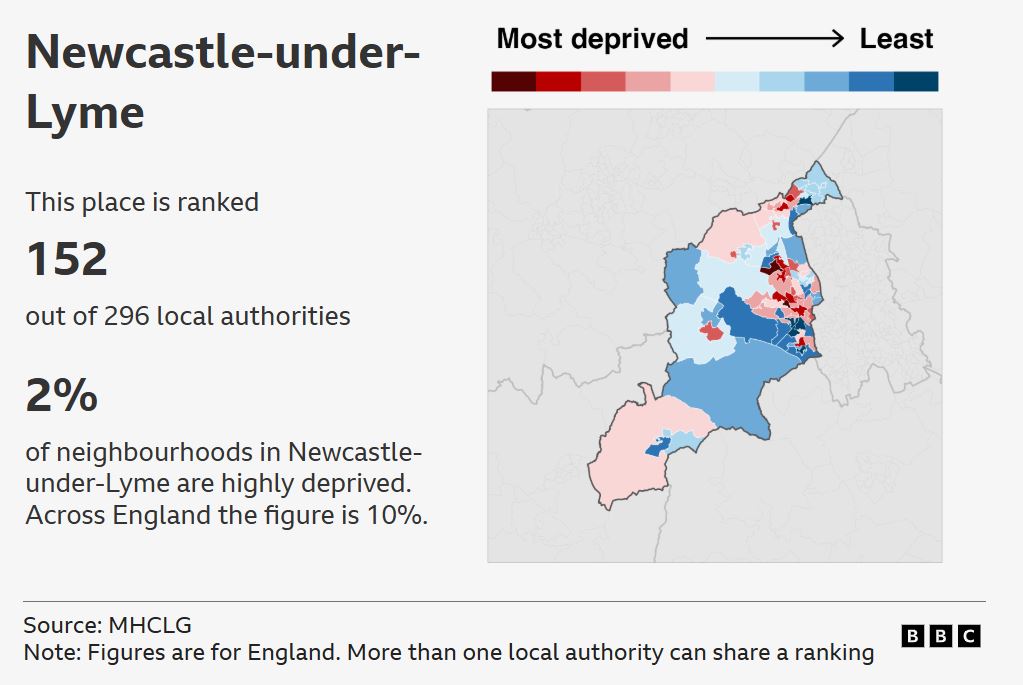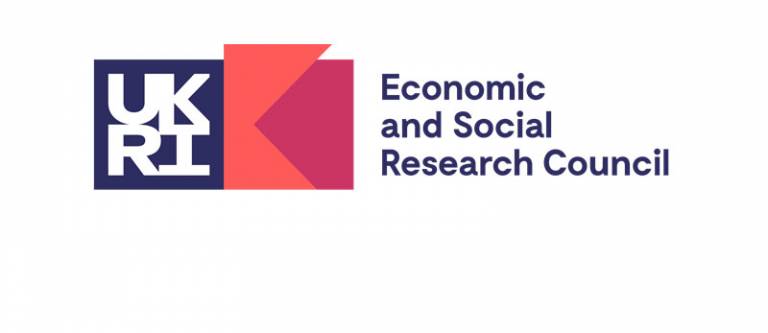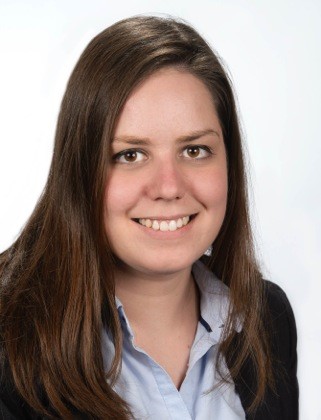Staffordshire Business School was ranked No1 in the Million+ group of universities in REF2021 – you can see our submission on the national results website here and for Business Schools across the sector there is an analysis by the Chartered Association of Business Schools (we ranked 51st out of 107 overall and 16th for Impact).
You can read our previous research news for 2023 here , 2022 here.
Peer review papers
Abbas, A.F., Khwaja, M.G., Abbasi, A.Z. and Hameed, A. (2023), “Market mavenism, tourists’ co-creation experience, loyalty, vaxication intention: mediating role of travel incentives in the post-COVID-19 environment”, Consumer Behavior in Tourism and Hospitality, Vol. 18 No. 4, pp. 532-550. https://doi.org/10.1108/CBTH-01-2023-0007
Abbasi, A. Z., Rather, R. A., Hooi Ting, D., Nisar, S., Hussain, K., Khwaja, M. G., & Shamim, A. (2024). Exploring tourism-generated social media communication, brand equity, satisfaction, and loyalty: A PLS-SEM-based multi-sequential approach. Journal of Vacation Marketing, 30(1), 93-109.https://doi.org/10.1177/13567667221118651
Barnett, N. J., Giovannini, A., & Griggs, S. (2024). Serial adapters? Local government chief officers and the navigation of space and time. Environment and Planning C: Politics and Space, 0(0). https://doi.org/10.1177/23996544231223618
Dimungu-Hewage, D., & Poletti-Hughes, J. (2023). Does board diversity decrease corporate fraud? International evidence from family vs. non-family firms. Review of Corporate Finance, 3(1–2), 175-211 –http://dx.doi.org/10.1561/114.00000039
Etherington, D., Jones, M., & Telford, L. (2023). ‘COVID crisis, austerity and the ‘Left Behind’ city: Exploring poverty and destitution in Stoke-on-Trent’. Local Economy, 37, 692-707 https://doi.org/10.1177/02690942231169700
Etherington D, Jeffery B, Thomas P, Jones M and Ledger-Jessop B (2023) ‘Trade union strategies to tackle labour market insecurity: Geography and the role of Sheffield TUC’ Industrial Relational Journal, 54, 261-277. https://doi.org/10.1111/irj.12400
Hameed, A., Khwaja, M. G., & Zaman, U., (2023). Configuring optimal contextual performance and task performance in offshore business processing organizations. Business Process Management Journal. 29(1), 285-307 https://doi.org/10.1108/BPMJ-07-2022-0330
Hazzam J. & Wilkins S. (2023). The influences of lecturer charismatic leadership and technology use on student online engagement, learning performance, and satisfaction, Computers & Education, https://doi.org/10.1016/j.compedu.2023.104809
Malik, M.F., Khwaja, M.G., Hanif, H. and Mahmood, S. (2023), “The missing link in knowledge sharing: the crucial role of supervisor support- moderated mediated model”, Leadership & Organization Development Journal, Vol. 44 No. 6, pp. 771-790. https://doi.org/10.1108/LODJ-04-2023-0199
Mami, D, Lami, E and Pugh G (in press) Fiscal Enforcement and Elections in the context of high corruption. Public Finance Review. ISSN 1091-1421
Poletti‐Hughes, J., & Dimungu‐Hewage, D. (2023). The effectiveness of gender diversity reforms and the impact of a familial culture: a spillover effect on board independence. British Journal of Management, 34(3), 1316-1339. https://doi.org/10.1111/1467-8551.12660– 4* Journal
Turi, J.A., Khwaja, M.G., Tariq, F. and Hameed, A. (2023), “The role of big data analytics and organizational agility in improving organizational performance of business processing organizations”, Business Process Management Journal, Vol. 29 No. 7, pp. 2081-2106. https://doi.org/10.1108/BPMJ-01-2023-0058
Wilkins, S., Ireland, J.J., Hazzam, J. and Megicks, P. (2024). Service contract type and consumer choice behavior: the contributory roles of perceived value, brand reputation and consumer incentives, Marketing Intelligence & Planning, https://doi.org/10.1108/MIP-01-2023-0028
Wilkins S., Hazzam J., Ireland J. & Kana R. (2023) International branch campuses: the influences of country of origin and campus environment on students’ institution choices and satisfaction, Journal of Higher Education Policy and Management, https://doi.org/10.1080/1360080X.2023.2272231
Zaman, U., Aktan, M., & Khwaja, M. G. (2023). Linking Regenerative Travel and Residents’ Support for Tourism Development in Kaua’i (Hawaii): Moderating-Mediating effects of Travel-Shaming and Foreign Tourist Attractiveness. Journal of Travel Research, 62(4), 782-801. (ABS 4) https://doi.org/10.1177/00472875221098934
Zaman, U., Florez-Perez, L., Anjam, M., Ghani Khwaja, M. and Ul-Huda, N. (2023), “At the end of the world, turn left: examining toxic leadership, team silence and success in mega construction projects”, Engineering, Construction and Architectural Management, Vol. 30 No. 6, pp. 2436-2462. https://doi.org/10.1108/ECAM-08-2021-0755
Zaman, U., Naeni, L. M., Huda, N. ul, & Khwaja, M. G. (2023). Time Flies When You are Having Fun: The Mediating Effects of Project Opportunity Management in the Relationship Between Project Leaders’ Self-Efficacy and Multidimensional Project Success. Project Management Journal, 54(2), 132-148. https://doi.org/10.1177/87569728221134524
PhD Completions
Mayowa AKINBOTE (2023) The Impact of the ECB’s Unconventional Monetary Policy Announcements on Financial Markets and Investors’ Behaviour (Principal supervisor Prof. Nirmala Lee and secondary supervisor Dr Lan Jiang) from London Metropolitan University
Dilrukshi HEWAGE (2023) The Effectiveness of Board Diversity Reforms and Corporate Practices: The Moderating Role of a Familial Culture, Prevalence of Family Businesses and Family Ownership (Principal Supervisor: Dr. Jannine Poletti Hughes, seconday supervisor Dr Yang Zhao) from the University of Liverpool.
Spiro LAZAROSKI (08/23). Investigating the transmission channels by which exogenous shocks originating in the global economy are transmitted to the countries of the Western Balkans (2003-2015). (Prof Geoff Pugh Principal Supervisor) from Staffordshire University
Tiantian LIU (03/2023). Chinese entrepreneurial proclivity and the conjectured link with the experience of foreign sojourns: Evidence from a study involving undergraduate students based in Beijing. (Harper Adams University With Dr Keith Walley and Dr Paul Adkins and external supervisor Prof Geoff Pugh)
Khaoula OMHAND (02/24) The Race to the Top: The Experiences and Strategies of Women of Colour in UK Academia from Wolverhampton University
Vicky ROBERTS (12/23) Branding in Micro- Organisations – A Network Approach from the University of Bradford
Ema TALAM (09/23). Evaluating the potential of public policy to jointly promote firms’ exporting and innovation. (Prof Geoff Pugh Principal Supervisor with Emeritus Professor Nick Adnett and Dr Mehtap Hisarciklilar) from Staffordshire University
Ongoing Projects
Prof Geoff Pugh, Prof Jon Fairburn, Prof Mark Gregory and Christine Dover are working with the University of Manchester ESRC funded project entitled Digital Stoke
Prof Jon Fairburn and Craig Holdcroft are part of the cross Unversity team delivering an Advance HE grant for the use of AI in training researchers including free workshops sign up here
Prof Jon Fairburn and colleagues at OCSI have completed phase 1 of preparation for the next Index of Multiple Deprivation (due Spring 2025). As well as assessing the issues of updating the air quality compenent of the IMD Prof Fairburn was also asked to research and assess potential new environmental indicators.
Prof Steven Griggs is leading a project to evaluate the development of the Goods Yard in Stoke on Trent
Bids in the pipeline
ESRC responsive mode: new investigator grants round two –Digital Marketing Capabilities in SMEs – To be submitted in February Dr Joe Hazzam
Books
New book by Kieron Chadwick – available here
Progress from last year’s small research awards
Drivers and outcomes of digital marketing activity – Dr Joe Hazzam, Paul Dobson, Vicky Roberts, Dr Bharati Singh
First paper has been submitted to the European Journal of Marketing (3*). The second paper is due to be submitted in April to the Journal of Small Business Management (3*)
Exploring factors leading to augment destination tourism in the northern areas of Pakistan using digital channels – Dr Muddasar Khwaja and Carol Southall
Khwaja, M.G., Southall, C., (2024). Exploring Factors Driving Destination Tourism Augmentation in Northern Pakistan through Digital Channels. 8th International Conference on Research in Business, Management and Economics, 8-10 March, 2024. Prague, Czech Republic.
Based on the suggestions and recommendations, it will be submitted to International Journal of Contemporary Hospitality Management (ABS 3*) by the end of March 2024.
Exploring the development of Islamic financial technology in South east Asia. A sentiment analysis – Dr Syed Zaidi and Dr Muddasar Khwaja
Title: “Does electronic word-of-mouth (eWOM) increase financial appetite? Configuring through the lens of facilitating conditions, information usefulness, and argument quality.”
Authors: Khwaja, M.G., Zaidi, S.M.T., & Abbas, A.F. Journal: International Journal of Bank Marketing (under review)
Job rotation and the inclusive labour market – Prof David Etherintgon and Duncan Adam
Full details will be available in an upcoming blog shortly. The blog on the conference that was organised is already here
Small research awards for 2024
Inclusive Labour Market – Engaging Stakeholders and Delivering Impact in Islington – Prof David Etherington and Prof Steven Griggs
Navigating Financial Evolution: Holistic analysis of financial inclusion, neo-banks and challenger banks in Pakistan’s transformative landscape – Dr Syed Zaidi and Dr Muddasar Khwaja
Diversity and inclusion in the workforce: A case study of Alton Towers – Carol Southall, Amanda Payne and Dr Andy Hanks
The Impact of Entrepreneurial Education on Small and Medium-Size Enterprise (SMEs) performance. – Dr Itoro Ekpo and Dr Fred Nyakudya
Gender and forced displacement: Investing in women refugee entrepreneurship to reduce GBV Vulnerability – Dr Khaoula Omhand, Dr Dilrukshi Dimungu Hewage, and Dr Susan Sisay
Role of firms’ governance in stimulating Corporate Carbon Productivity in the UK – Emission Trading Schemes vs. Government Policy Intervention – Dr Dilrukshi Dimungu Hewage and Dr Khaoula Omhand
Conferences and presentations
Carol Southall presented at the ‘UK Coach Tourism: Volume, Value, Perceptions & Professionalisation’ conference Jan 2024
Ibrahim, B., Hazzam, J., Aljarah, A., & Qalati, S. (2023). How Do artificial intelligence-driven Chatbots impact customer-brand relationship? Travel and Tourism context, The 5th Spring Conference on Futuristic Approaches, Istanbul, Turkey.
Ibrahim, B., Hazzam, J., Aljarah, A., & Elrehail, H. (2023). Social media marketing elements and online brand engagement: an investigation in the coffee shop industry, 2nd International Conference on Contemporary Issues in Commerce, Istanbul, Turkey.
Khwaja, M. G., (2023). Inspecting patients’ Experiential Value to build Patients Loyalty in private and public sector hospitals: An Empirical Investigation. 22nd International Marketing Trends Conference, ESCP Business School, Paris. France (19-21 January, 2023).
Khwaja, M.G., Southall, C., (2024). Exploring Factors Driving Destination Tourism Augmentation in Northern Pakistan through Digital Channels. 8th International Conference on Research in Business, Management and Economics, 8-10 March, 2024. Prague, Czech Republic
Upcoming Tourism conference organised by Carol Southall, NTAN & ATHE on the theme the dynamic interplay of “People, Place, and Pride” in the realm of tourism – 27th June
Miscellaneous
Dr Ema Talam, Prof Geoff Pugh and Prof Jon Fairburn submitted evidence to the UK Parliament, Business and Trade Committee which is investigating industrial policy
Etherington D and Jones M (2023) ‘Political economy of the inclusive labour market: welfare through work revisited’ in J Ingold and P McGurk (eds) Employer Engagement: Making Active Labour Market Policies Work (Bristol University Press, Bristol) 34-51
Grattan N and Jones M (2023) ‘More-than-civc: higher education and civic society in post-industrial localities’ in J Dobson and E Ferrai (eds) Reframing the Civic University: An Agenda for Impact (Palgrave Macmillan, London) 121-141
Hussain, K., Abbasi, A.Z., Khwaja, M.G., Hussain, A., and Hooi, T.G. (2023). Perceived Value of Images Carrying Tourism Location Information on social media and Customer Brand Engagement. in Brand Co-creation tourism research: contemporary issues and challenges. CRC Press. Routledge Taylor and Francis Group. Book chapter
Havoli B, Fairburn J, Pugh G, Talam E, Efendic A, Stojcic N (2023) Promoting the creative sector in three deindustrialised economies: the United Kingdom; Bosnia and Herzegovina; and Croatia. Project Report. Staffordshire University.
Jones M (2023) ‘Dr Gordon MacLeod (1964-2022)’ Scottish Geographical Journal, 139, 242-246.
Jones M (2023) ‘Relationality’ in L Lees and D Demeritt (eds) Concise Encyclopedia of Human Geography (Elgar, Cheltenham) 333-337
Middleton, J, Southon, P and Fairburn, J (2023) The impact of environmental provisions in trade agreements on non-communicable disease: working paper. PETRA.
Staffing changes
Good luck to Dr Muddasar Khwaja who has a new job at Keele University and Dr David Cook who has a new job at Nottingham Trent University
Good luck to Vicky Roberts in retirement
Professors Geoff Pugh and Jon Fairburn will be Emeritus Professors from April 2024.















